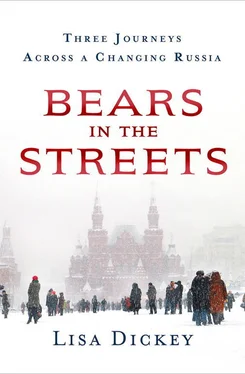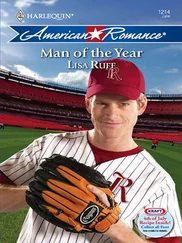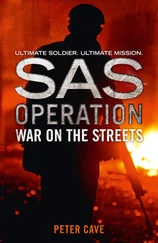“It’s my daughter! Lusya!” Valya exclaimed, and I turned to look again. I’d spent an afternoon chatting with Lusya 20 years ago, when she was 18, and I had no recollection of what she looked like back then. But now she looked—like so many Russian women seemed to these days—like a model. “She’s taking us to a place with a view,” Valya said, and we set off in a little pack, two five-foot-tall Russian grandmothers and one bemused American, all trailing behind our Amazonian guide.
Lusya took us to a deserted rooftop atop a nearby hill, a place with a 365-degree view of Vladivostok. It was a perfect, sunny day, just a few puffy clouds floating by, and I marveled at the city’s many new buildings, the suspension bridges, and the shimmering water of Golden Horn Bay. With its many hills, coves, and scenic bays, Vladivostok is often compared to San Francisco, and from here the similarity was obvious.
As quickly as she’d come, Lusya said, “I have to get back to work,” and she clack-clacked off in her high heels. Valya, Katya, and I meandered back down, and we set off toward the pedestrian mall, Admiral Fokin Street.
This was the stroll in which Katya informed me that “Americans think that in Russia, we have bears roaming in the streets.” When I said I wasn’t sure that was true, she waved her hand dismissively.
“A big part of the problem,” she informed me, “is that President Obama doesn’t like President Putin.”
“Why?” I asked.
“Because three years ago, Putin was late for a meeting with him,” she said. “It wasn’t his fault; his plane was late. And because Putin is a well-mannered person, he apologized, but Obama took offense and he’s never gotten over it.” I’d never heard of this incident, but I knew better than to ask whether it had really happened. With her seen-it-all demeanor and deadpan proclamations, Katya was a woman who appeared never to have been troubled by uncertainty.
“You know,” Katya went on, “President Putin is in Vladivostok right now. He’s speaking at a conference on Russian Island.”
“Katya!” hissed Valya under her breath. “Why do you tell her everything?”
“Everybody knows it!” Katya replied. “It’s in the news. It’s no secret.” I was surprised at Valya’s continuing nervousness; it was as if, after a brief respite in 2005, her old 1995 paranoia had swung right back around. Was this indicative of a change in Russian society generally, or just a personal quirk? Katya, in contrast, seemed willing to say whatever popped into her salt-and-pepper-haired head.
We kept walking. At the end of Admiral Fokin Street there was a mall-style fountain, and Katya paused there to scoop some water into her mouth.
“What are you doing?” Valya asked.
“Wanted to see if it was seawater or municipal,” Katya announced. “Municipal. Tastes terrible.”
We reached the Sportivnaya waterfront, where a jumble of outdoor cafés, children’s theme park rides, and sculptures competed for attention, and in the distance we could hear music. It was coming from a stage set up for the “Days of Peace on the Pacific Ocean” festival: A group of pigtailed girls in matching white T-shirts and hair bows stood in front of a rather sparse audience, singing a song wishing happiness to the world.
“You’re welcome,” Katya said to me, gesturing grandly to the stage.
“Ooh, it’s just starting,” Valya chimed in. “Let’s watch.”
The festival turned out to be a celebration of the seventieth anniversary of the end of World War II in the Pacific. It was quite sweet, with groups of boys and girls taking turns singing and dancing on the stage, then exiting to rapturous applause, including ours. “You see?” Katya said. “Russians are friendly people. We just want peace.”
Afterward, we ducked into a stolovaya , a Soviet-style cafeteria offering such classic Russian fare as borscht, carrot salad, and chicken cutlets. As we ordered soups from the paper-hatted woman behind the counter, she happened to hand me a chipped bowl. “Excuse me,” Valya said. “Can we please have decent plates? We have a guest here from America .” The woman looked at me, took back my bowl, and wordlessly filled another. I figured she was annoyed, but when I said, “Thank you,” she actually smiled. I considered asking her how she felt about Barack Obama, but then thought better of it.
* * *
In the afternoon, I received a text message on the little Russian Alcatel phone I’d bought. [5] Though I used my T-Mobile iPhone to communicate with people back home, it would have been very expensive for Russians to call me on it. So I bought a pay-as-you-go plan from the Russian carrier MTS. The rate was three rubles (one-half cent) for a one-minute call or a text message. Worth every kopek.
The text asked if I wanted to go to Russian Island on Saturday, but I wasn’t sure who it was from—this was a dirt-cheap, old-style pushbutton phone, and I couldn’t figure out how to see the sender’s name. When I finally deduced that it was from Valya’s daughter Lusya, it took me another few minutes to work out how to reply. I managed to type the word “da,” and she texted back that I should meet them at the Lenin statue at 10 a.m. on Saturday, and bring a bathing suit.
It was 70 degrees that morning, another beautiful sunny day in what had so far been a very sunny trip. I walked down to the Lenin statue, and Lusya popped out of a giant maroon Toyota Land Cruiser parked nearby, waving me over. In the vehicle were her husband, Sergei, their daughters—11-year-old Karina and 14-year-old Diana—and Diana’s classmate Nastya. I squeezed into the backseat with the girls, and as we headed out, Lusya told me that they were studying English in school and for the rest of the day were to speak only English with me. The girls all giggled.
As Sergei drove us across the new suspension bridge, the girls and I chatted in rudimentary English about their favorite singers, their favorite movies, whether they liked hamburgers. Arriving on Russian Island, I figured we’d head straight to a beach, as Lusya had told me to wear my swimsuit. Instead, Sergei veered onto a muddy, unpaved path that plunged directly into the woods. The SUV started climbing as the road, such as it was, rose higher.
The SUV jolted and bounced on the rutted road, rocking like a carnival ride. Every few minutes, Lusya would shout, “Stop!” and Sergei would slam on the brakes. She’d open her door and dart out, charging into the woods to pluck tiny red berries or mushrooms she’d somehow seen peeking out from under the fallen leaves. She’d pass handfuls of berries to the backseat, and though they were sour, the girls and I popped them in our mouths like candy.
About 20 minutes after we’d turned off the main road, we finally arrived at the top of a hill. This was, Sergei informed us, the best view on Russian Island. Unfortunately, it was obscured by a foggy mist, so after a couple of quick photos, we got right back into the SUV for the hair-raising descent. After many more minutes of jouncing and bouncing, we finally got off that terrible road and back onto the paved one. Then, to my dismay, Sergei whipped the steering wheel around again, and we plunged back into the wilderness.
“It’s a good thing I know you,” I joked to Lusya. “Otherwise, I’d think you were taking me somewhere to kill me.”
“Ha!” she replied. “This would be a good place to do it.”
We bumped and slogged our way deeper into the woods, and just as I thought my brains would jolt out of my head, we reached a clearing. Sergei parked the SUV and we got out, stretched with relief, and started to walk.
If I’d thought this was the end of the journey, I was wrong. We walked… and walked… and walked. We tromped through fields of wild flowers and through copses of trees. We scrambled up cliff sides and paused at magnificent views of severe rock formations, sloping hills, and curving inlets. Finally, after several miles, we emerged onto a flatland of slate-colored rock and tide pools. We walked to the water’s edge and put down our stuff.
Читать дальше












